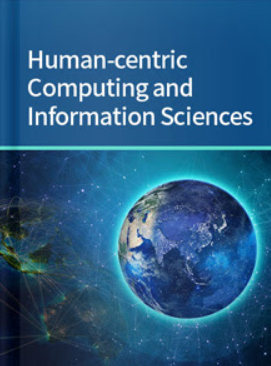实时面部表情识别通过密集&挤压和激励块
IF 3.9
2区 计算机科学
Q2 COMPUTER SCIENCE, INFORMATION SYSTEMS
Human-Centric Computing and Information Sciences
Pub Date : 2022-01-01
DOI:10.22967/HCIS.2022.12.039
引用次数: 1
摘要
由于2019冠状病毒病(COVID-19)大流行,传统的面对面课程已转变为在线和电子学习课程。虽然网络课程在时间和地点上提供了灵活的教与学,但教师无法充分了解学生的个人学习情况和情绪状态。基于面部表情识别的学习情绪认知是近年来研究的热点问题。为了实现情感计算,本文提出了一种基于密集挤压激励网络(Dense Squeeze-and-Excitation Networks, DSENet)的学习情绪快速识别模型,该模型能够快速识别学生的学习情绪,同时提出的实时在线反馈系统能够即时通知教师。首先,DSENet通过一个名为“面部表情识别2013”的开放数据集进行训练和验证。然后,我们从在线学习课程中收集学生的学习情绪,并应用迁移学习和数据增强技术来提高测试的准确性。提出的DSENet模型和实时在线反馈系统旨在实现任何教学和学习环境下有效的电子学习,特别是在最近的COVID-19环境中©这是一篇基于知识共享署名非商业许可(http://creativecommons.org/licenses/by-nc/3.0/)的开放获取文章,该许可允许在任何媒介上不受限制的非商业使用,分发和复制,前提是正确引用原创作品。本文章由计算机程序翻译,如有差异,请以英文原文为准。
Real-time Facial Expression Recognition via Dense & Squeeze-and-Excitation Blocks
Due to the coronavirus disease 2019 (COVID-19) pandemic, traditional face-to-face courses have been transformed into online and e-learning courses. Although online courses provide flexible teaching and learning in terms of time and place, teachers cannot be fully aware of their students’ individual learning situation and emotional state. The cognition of learning emotion with facial expression recognition has been a vital issue in recent years. To achieve affective computing, the paper presented a fast recognition model for learning emotions through Dense Squeeze-and-Excitation Networks (DSENet), which rapidly recognizes students’ learning emotions, while the proposed real-time online feedback system notifies teacher instantaneously. Firstly, DSENet is trained and validated by an open dataset called Facial Expression Recognition 2013. Then, we collect students’ learning emotions from e-learning classes and apply transfer learning and data augmentation techniques to improve the testing accuracy. The proposed DSENet model and real-time online feedback system aim to realize effective e-learning for any teaching and learning environments, especially in the COVID-19 environment of late © This is an Open Access article distributed under the terms of the Creative Commons Attribution Non-Commercial License (http://creativecommons.org/licenses/by-nc/3.0/) which permits unrestricted non-commercial use, distribution, and reproduction in any medium, provided the original work is properly cited.
求助全文
通过发布文献求助,成功后即可免费获取论文全文。
去求助
来源期刊

Human-Centric Computing and Information Sciences
Computer Science-General Computer Science
CiteScore
13.10
自引率
12.10%
发文量
0
审稿时长
13 weeks
期刊介绍:
In Human-centric Computing and Information Sciences (HCIS), KIPS-CSWRG publishes high quality papers which cover the various theories and practical applications related to human-centric computing and information sciences. The published papers present results of significant value to solve the various problems with application services and other problems which are within the scope of HCIS. In addition, we expect they will trigger further related research and technological improvements relevant to our future lives.
 求助内容:
求助内容: 应助结果提醒方式:
应助结果提醒方式:


